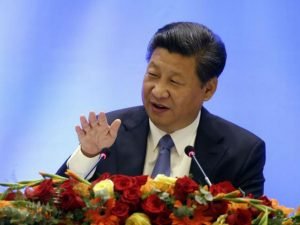China’s economic problems may only just be starting, and bitcoin is poised to benefit more than ever before. On top of the ongoing currency devaluations, bubbles are popping in many different industry segments across China, including stock and property markets. As a result, investors are eyeing bitcoin as an alternative.
Chinese Investors Moving into Bitcoin
Investors in China are bouncing from one asset to the next hoping to maximize returns, which is nothing uncommon for Chinese investors. This time, however, growing concerns about ongoing devaluation of the Chinese yuan has led investors to pick up bitcoin, and the next time the yuan is weakened, or another bubble pops, the bitcoin bull run could reach a record level.There’s already been considerable movement this year. Since the end of 2015, bitcoin’s value in yuan has increased 50 percent to approximately 4,300 yuan, or $642USD, from a level of roughly 2,800 yuan.

Bitcoin-Friendly Monetary Policy
At a roundtable discussion last week, Chinese President Xi Jinping emphasized that his administration will “continue its aggressive fiscal policy and moderate monetary policy to expand demand adequately.”This is the same accommodative monetary policy that has allowed the bitcoin market in China to thrive. Bitcoin trading in China currently accounts for 40 percent of global bitcoin investment, and makes up 80 percent of the transactions recorded on the blockchain.An official at BTC Trade, one of the largest Chinese bitcoin exchanges by volume, shed some light on the further reasons for bitcoin’s popularity in the country:

“SOME CUSTOMERS USE BITCOINS TO TRANSFER MONEY ABROAD, WHILE OTHERS DO SO FOR SPECULATIVE INVESTMENT.”
Bitcoin Safe for Now
Investors who have moved into bitcoin are not likely to move their money out unless market conditions change, making the digital currency less attractive. For example, new government regulations could restrict bitcoin trading. However, the Chinese government has been forthcoming about its regulations so far, and Chinese bitcoin investors feel safer than ever before, at least for now.
Ongoing Chinese Bubble Problems
China’s bubble problems, which began around the year 2000, are nothing if not persistent. Some have noticed that it has become the standard way of life for all Chinese to live this way, chasing bubble after bubble with any money they have left over at the end of the month. 2007 was the year of their largest stock market bubble, which was followed by a 4 trillion yuan stimulus package in 2008 in response to the global financial crisis.

The Chinese people responded by flooding to buy condominiums in coastal cities such as Beijing and Shanghai. When the government imposed restrictions on the number of condo purchases, they flocked to wealth management products instead.Then in 2014, regulations became stricter for these products too, creating significant concerns about high-interest investments that drove investors to the “shadow banking industry,” and many subsequently moved their money back to the stock market.However, after the stock market peak in June of last year, share prices have plunged once more, and investors sought better returns in online finance, commodity futures, and property markets. Bitcoin has soared during this time, and the property bubble has spread to more major cities. At least for now, this appears to be a self-enforcing, positive-feedback loop that could take bitcoin to new heights.